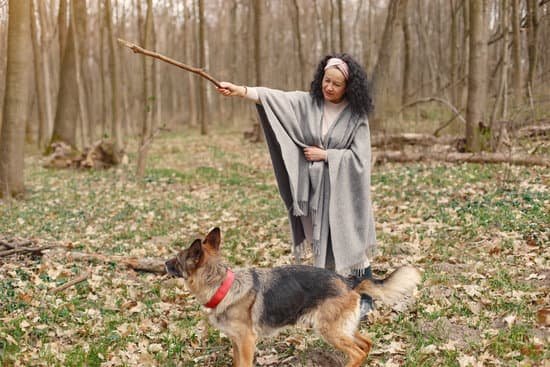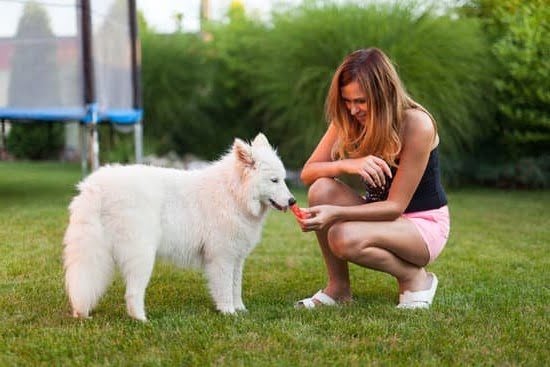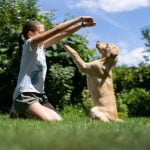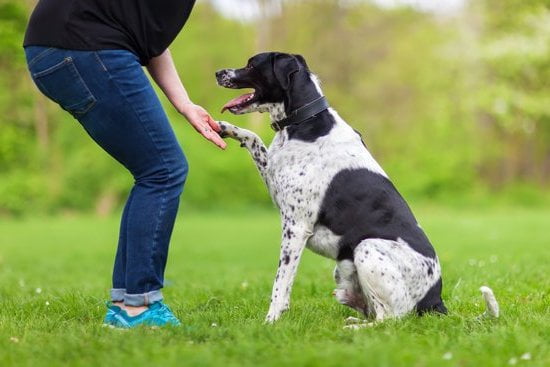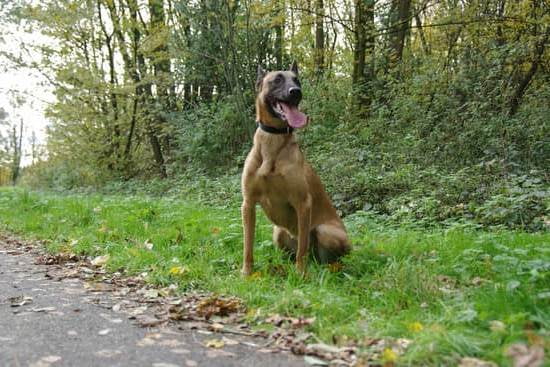Training your dog to poop in one place is a crucial aspect of their overall obedience and behavior. It not only helps keep your surroundings clean and organized but also ensures the well-being and safety of your furry friend. In this article, we will delve into the significance of this training and provide valuable insights on how to achieve this goal effectively.
Understanding your dog’s pooping behavior is essential in successfully training them to use a designated area. Dogs often have different preferences when it comes to choosing a spot to relieve themselves, which can lead to a messy and inconsistent situation. By understanding the reasons behind their choices, you can tailor your training approach to align with their natural instincts.
Selecting the ideal pooping area involves considering various factors such as accessibility, privacy, and convenience for both you and your dog. This designated spot should be strategically chosen to make it easier for your furry companion to understand where they are supposed to go, ultimately making the training process smoother. By using positive reinforcement techniques and establishing a consistent routine, you can effectively train your dog to poop in one place while strengthening the bond between you and your pet.
Understanding Your Dog’s Pooping Behavior
When it comes to understanding your dog’s pooping behavior, it’s essential to realize that dogs don’t always choose the same spot for a variety of reasons. Dogs rely heavily on their sense of smell and instinctual behaviors when it comes to selecting a place to relieve themselves. This can be influenced by factors such as territory marking, avoiding areas with strong smells, or simply feeling comfortable in a particular location.
Factors influencing your dog’s pooping behavior:
- Territory marking: Dogs may choose different spots to mark their territory, especially when in unfamiliar environments or around other animals.
- Avoiding strong smells: Dogs have a sensitive sense of smell and may avoid areas with overpowering scents or odors that could mask other dogs’ markings.
- Comfort and familiarity: Your dog may prefer certain surfaces or locations due to feeling secure or comfortable in that area.
To train your dog to poop in one place, it’s crucial to understand these factors and take them into consideration when selecting the designated pooping area. By accommodating your dog’s natural instincts and preferences, you can create an environment that encourages them to consistently use the same spot for their bathroom needs.
Ultimately, understanding why dogs don’t always choose the same spot for pooping is the first step in successfully training them to do so. By recognizing and working with your dog’s natural behaviors, you can create a designated poop spot that meets their needs and encourages consistent behavior.
Selecting the Ideal Pooping Area
When it comes to training your dog to poop in one place, selecting the ideal pooping area is crucial for the success of this training. There are several factors to consider when choosing the designated spot for your dog’s bathroom breaks.
Accessibility and Convenience
The first factor to consider when selecting the ideal pooping area for your dog is accessibility and convenience. The designated spot should be easily accessible to your dog, especially during urgent times such as early in the morning or late at night. It should also be convenient for you as the pet owner, ensuring that you can easily accompany your dog to this spot for their bathroom breaks.
Distractions and Disturbances
Another important consideration is the presence of distractions and disturbances in the chosen pooping area. Dogs can easily get distracted by noises, scents, or other animals while they are trying to go potty. Select a spot that is relatively quiet and free from any potential disturbances that could disrupt your dog’s focus during their bathroom breaks.
Cleanliness and Hygiene
Lastly, cleanliness and hygiene play a significant role in determining the ideal pooping area for your dog. You’ll want to choose a spot that is easy to clean up after your pet has done their business. Avoid areas with heavy foot traffic or where people often gather, as this can lead to sanitation issues. Additionally, it’s important to choose a location that won’t pose a health risk or create a mess for others.
By carefully considering these factors, you can select an ideal pooping area that will facilitate successful training of your dog to poop in one place. These considerations will not only benefit your training efforts but also contribute to the overall convenience and well-being of both you and your furry companion.
Using Positive Reinforcement
When it comes to training your dog to poop in one place, positive reinforcement is a crucial tool in achieving this goal. By using positive reinforcement, you can effectively communicate to your dog where you want them to go potty and encourage them to continue doing so in the designated area. This method involves rewarding your dog for pooping in the right spot, which will ultimately reinforce the desired behavior.
Understanding Positive Reinforcement
Positive reinforcement involves giving your dog something pleasant or desirable immediately after they exhibit the desired behavior. This can be in the form of treats, verbal praise, or toys.
When your dog understands that pooping in the designated area leads to positive rewards, they are more likely to repeat this behavior. It’s important to ensure that the reward is given immediately after they’ve finished their business so that they make a clear connection between their action and the positive outcome.
Establishing a Reward System
To effectively use positive reinforcement for training your dog to poop in one place, it’s essential to establish a consistent reward system. Have a supply of small treats on hand when taking your dog out for bathroom breaks.
As soon as they finish pooping in the designated area, offer them a treat and provide enthusiastic praise. Over time, you can gradually reduce the frequency of treats and rely more on verbal praise and occasional rewards to maintain the desired behavior.
Being Patient and Consistent
It’s important to be patient and consistent when using positive reinforcement for training purposes. Every time you take your dog out to poop, use the same designated spot and apply consistent commands or cues associated with this behavior. By staying consistent with your approach and being patient with your dog’s progress, you can effectively train them to poop in one place through positive reinforcement.
Consistency Is Key
When it comes to training your dog to poop in one place, consistency is the key to success. Dogs thrive on routine, and establishing a regular bathroom schedule can help reinforce the desired behavior of pooping in the designated area. By following a consistent routine, you can effectively communicate your expectations to your dog and facilitate the training process.
Start by observing your dog’s natural bathroom habits and try to identify a pattern. Pay attention to the times of day when they typically need to go and take note of any specific cues or behaviors that signal their need to relieve themselves. Once you have a better understanding of your dog’s bathroom routine, you can begin to establish a schedule for their bathroom breaks.
It’s important to take your dog out to their designated pooping area at regular intervals throughout the day. This may include first thing in the morning, after meals, and before bedtime. By consistently taking them to the same spot every time they need to go, you are helping them develop an association between that specific location and the act of eliminating waste.
Be patient and give them ample time to do their business during each bathroom break. With time and consistent reinforcement, your dog will learn that this is where they are supposed to poop.
Dealing With Accidents
Training your dog to poop in one place can be a challenging process, and setbacks are a normal part of the training journey. It’s important to remain patient and consistent as you work through accidents and setbacks with your dog. Here are some tips for handling accidents during the training process:
1. Stay Calm: When accidents happen, it’s crucial to stay calm and avoid reacting negatively towards your dog. Punishing or scolding your dog can lead to anxiety and confusion, making it harder for them to understand the desired behavior. Instead, focus on redirecting your dog to the designated pooping area and providing positive reinforcement when they do their business in the right spot.
2. Clean Up Thoroughly: Accidents are inevitable during the training process, so it’s essential to clean up any messes promptly and thoroughly. Use an enzymatic cleaner specifically designed for pet accidents to eliminate odors and discourage repeat incidents in the same area.
3. Reassess Your Routine: If accidents become frequent, it may be time to reassess your routine and make adjustments as needed. Consider whether you are providing enough opportunities for your dog to eliminate in the designated area, and if there are any changes that need to be made to better accommodate their needs.
Handling setbacks during the training process is a normal part of teaching your dog new habits. By staying patient, consistent, and positive, you can work through accidents and continue making progress towards establishing a designated pooping area for your furry friend.
Troubleshooting Common Challenges
Addressing resistance or disinterest from your dog in the training process of pooping in one place can be a frustrating and challenging experience for many pet owners. However, it’s important to understand that every dog is unique and may require different approaches to address this issue effectively. By identifying the root causes of their resistance or disinterest, you can tailor your training methods to better suit your dog’s needs.
One common reason for resistance or disinterest from a dog when it comes to pooping in one place is a lack of motivation. In some cases, dogs may not feel encouraged to follow the designated routine because they do not associate the designated area with positive experiences.
To address this, it’s crucial to use positive reinforcement techniques such as rewards and praise when your dog successfully poops in the desired location. This will help them understand that using the designated pooping area is associated with positive outcomes and increase their motivation to comply with your training efforts.
In addition to motivation, environmental factors may also contribute to a dog’s resistance or disinterest in pooping in one place. For example, if the designated area is too close to high-traffic areas or has distractions such as strong odors or noise, your dog may be less inclined to use that specific spot.
When selecting an ideal pooping area, consider factors such as privacy, cleanliness, and accessibility for your dog. Creating a comfortable and appealing environment can help mitigate any reluctance from your dog.
Another potential challenge when training your dog to poop in one place is inconsistency or impatience on the part of the owner. It’s important to remember that this process takes time and patience. Reacting negatively towards accidents or expressing frustration can cause anxiety or confusion for your dog, making it even more challenging for them to adhere to the training routine consistently.
| Common Challenges | How to Address Them |
|---|---|
| Lack of motivation | Use positive reinforcement techniques such as rewards and praise. |
| Environmental factors | Select an ideal pooping area considering privacy, cleanliness, and accessibility. |
| Inconsistency or impatience | Be patient with the training process and avoid reacting negatively towards accidents. |
Taking It to the Next Level
Now that you have successfully trained your dog to poop in one designated spot, it’s time to take it to the next level and work on advancing to other desired behaviors. This can include teaching your dog to signal when they need to go out, asking them to wait before going out, or even training them to do their business on command.
One way to achieve this is by using the same positive reinforcement techniques that were effective in training your dog to poop in one place. By providing rewards such as treats or praise when your dog exhibits the desired behavior, you can effectively communicate what is expected from them.
Another important aspect of advancing your dog’s behaviors is consistency. Just like with training them to poop in one spot, maintaining a routine and providing clear cues will help your dog understand what you expect from them. This means sticking to a regular schedule for bathroom breaks and consistently using the same commands and signals.
While training your dog to poop in one place was an important step, advancing their behaviors can contribute greatly to their overall obedience and well-being. By continuing with positive reinforcement and consistency, you can effectively teach your dog a variety of desired behaviors beyond just pooping in one designated area.
| Advancing Desired Behaviors | Techniques |
|---|---|
| Using Positive Reinforcement | Provide treats or praise for desired behavior |
| Consistency | Maintain a regular schedule and use clear cues for commands |
Conclusion
In conclusion, training your dog to poop in one place is not only feasible but also highly beneficial for both you and your furry companion. By understanding your dog’s pooping behavior and selecting the ideal pooping area, you can set a solid foundation for successful training. Using positive reinforcement and establishing a consistent routine will further reinforce this behavior, making it a habit for your dog.
As you celebrate the success of your dog consistently pooping in one designated area, it is important to maintain these habits by continuing to provide positive reinforcement and sticking to the established routine. Consistency is key in reinforcing this behavior, so it’s crucial to remain diligent even after initial success has been achieved.
By following these strategies and remaining patient, you can successfully train your dog to poop in one place. Remember that setbacks are normal during the training process, and it’s essential to address them with patience and understanding.
With time and dedication, you will create a lasting habit for your dog that benefits both of you in the long run. So, if you’re wondering how to train dog to poop in one place, it’s all about consistency and positive reinforcement.
Frequently Asked Questions
Can You Train a Dog to Poop in One Spot?
Yes, you can train a dog to poop in one spot through consistent and positive reinforcement. By taking your dog to the designated spot every time and rewarding them when they go, they will eventually learn to do their business there.
Why Doesn’t My Dog Poop in One Spot?
There are several reasons why your dog may not poop in one spot. It could be due to lack of training, anxiety or fear, medical issues, or simply preference for a different surface or location. Understanding your dog’s behavior and addressing any underlying issues can help resolve this issue.
How Do I Get My Dog to Poop in a Place?
To get your dog to poop in a specific place, start by choosing a consistent spot that is easily accessible for both you and your dog. Take them to that spot frequently, especially after meals or waking up.
When they go, praise and reward them immediately. Consistency and patience are key to successfully training your dog to poop in a place of your choosing.

Welcome to the blog! I am a professional dog trainer and have been working with dogs for many years. In this blog, I will be discussing various topics related to dog training, including tips, tricks, and advice. I hope you find this information helpful and informative. Thanks for reading!

